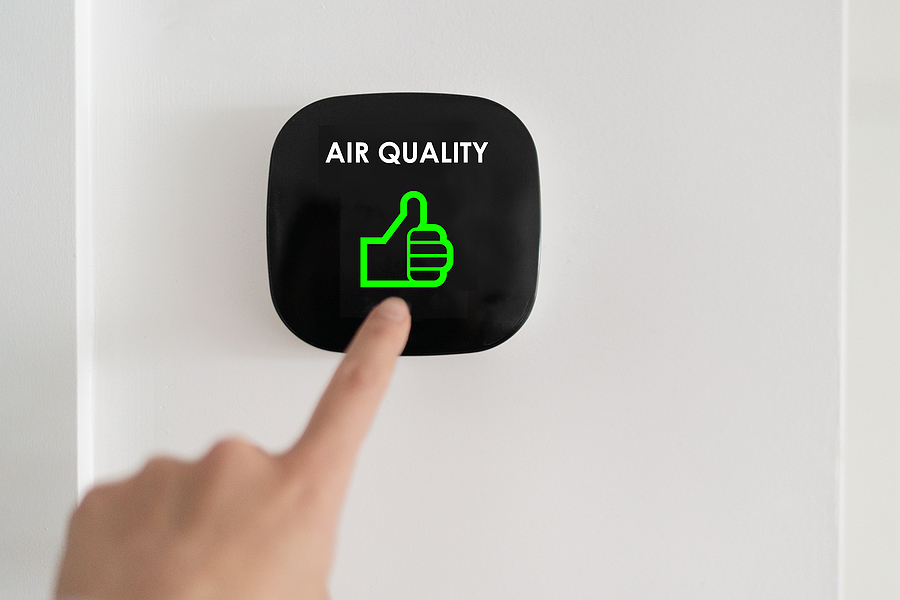In todays fast-paced world, many of us spend the majority of our time indoors, whether at home, at work, or in various recreational spaces. Given this reality, its crucial to understand how indoor air quality affects our health. From simple discomfort to severe health problems, the quality of the air we breathe indoors plays a vital role in our overall well-being.

Understanding Indoor Air Quality
Indoor air quality (IAQ) refers to the air quality within and around buildings and structures. This can significantly impact the health and comfort of the occupants. IAQ is affected by various factors, including pollutants, ventilation, and the presence of moisture.
According to the World Economic Forum, common sources of indoor air pollution include tobacco smoke, household cleaning products, and building materials. Understanding these sources is the first step in mitigating their impact.
Common Indoor Air Pollutants
Particulate Matter
Particulate matter (PM) consists of tiny particles suspended in the air. These particles can be harmful when inhaled, especially for individuals with respiratory conditions. Sources of PM include dust, tobacco smoke, and cooking smoke.
Volatile Organic Compounds (VOCs)
VOCs are chemicals that can easily become vapors or gases. They are released from products like paints, cleaning supplies, and building materials. Prolonged exposure to VOCs can cause various health issues, including headaches, dizziness, and respiratory problems.
Carbon Monoxide (CO)
Carbon monoxide is a colorless, odorless gas produced by burning fossil fuels. High levels of CO can be deadly, causing symptoms like headaches, dizziness, and even death.
Mold and Mildew
Mold in HVAC systems can be a significant concern for indoor air quality. Mold spores can cause allergic reactions, respiratory issues, and other health problems.
The Health Impact of Poor Indoor Air Quality
Short-Term Effects
Poor indoor air quality can cause immediate symptoms such as headaches, dizziness, fatigue, and irritation of the eyes, nose, and throat. These symptoms are often temporary and can be alleviated by improving air quality.
Long-Term Effects
Long-term exposure to poor indoor air quality can lead to more severe health problems. These include chronic respiratory diseases, heart disease, and even cancer. Understanding the long-term impact of indoor air quality is crucial for taking preventive measures.
Improving Indoor Air Quality
Regular Maintenance of HVAC Systems
One of the most effective ways to improve indoor air quality is by maintaining your HVAC system. This includes regular cleaning and inspection to ensure its functioning correctly. Learn more about HVAC systems and how they work.
Using Air Purifiers
Air purifiers can help remove pollutants from the air, improving overall air quality. These devices are especially useful in areas with high levels of pollutants.
Proper Ventilation
Ensuring proper ventilation can help reduce the concentration of indoor air pollutants. This can be achieved by opening windows and using exhaust fans to circulate fresh air.
Household Cleaning
Regular cleaning can significantly reduce the amount of dust and other pollutants in your home. Using environmentally friendly cleaning products can also help minimize the release of VOCs.
Commercial Spaces and Air Quality
The Importance of IAQ in Workplaces
For business owners, ensuring good indoor air quality in workplaces is essential for employee health and productivity. Poor air quality can lead to increased sick days and reduced efficiency.
Commercial Duct Cleaning
Regular commercial duct cleaning can help maintain good air quality. This process removes dust, mold, and other pollutants from ductwork, ensuring that the air circulating in the building is clean.
FAQs
What are common indoor air pollutants?
Common indoor air pollutants include particulate matter, volatile organic compounds (VOCs), carbon monoxide, and mold.
How can I improve the air quality in my home?
Improving air quality can be achieved through regular HVAC maintenance, using air purifiers, ensuring proper ventilation, and regular cleaning.
maintenance, using air purifiers, ensuring proper ventilation, and regular cleaning.
Why is indoor air quality important?
Indoor air quality is crucial because it can significantly impact your health. Poor air quality can lead to both short-term and long-term health issues.
Final Thoughts
Understanding how indoor air quality affects our health is the first step towards creating a healthier living environment. Whether youre a homeowner or a business owner, taking steps to improve indoor air quality can lead to better health and well-being. Dont overlook this essential aspect of your living or working space.